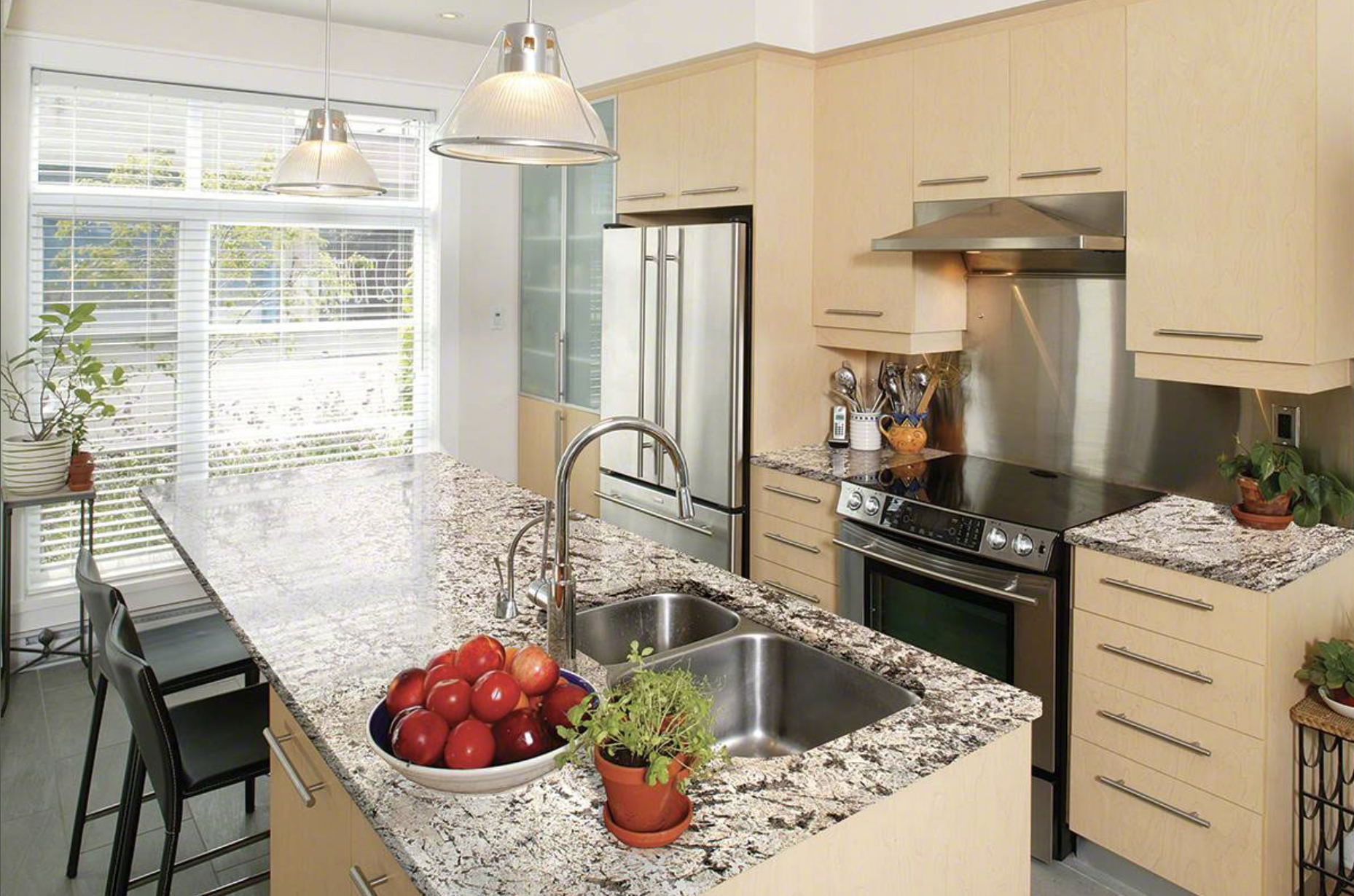Granite is one of the best building materials for new countertops. There are many reasons that is the case, as well as many different areas of the home where you can implement granite countertops. However, there is no area of the home more suitable for installing granite countertops than the kitchen. Having granite kitchen countertops will not only look good but will offer helpful functional benefits as well. Choosing the right material for your kitchen countertops in no small task. Selecting granite can be one of the best decisions that you ever make.
There are several factors to consider when thinking about buying granite kitchen countertops, such as what type of granite you like and the functionality of the different types, among many other aspects.
Granite: General Information
No matter which type of granite you decide on, there are certain characteristics that are generally similar for all types of granite.
Patterns and Marks
Different types of granite can either feature veins, swirls or be consistent in pattern.
Durability
Regardless of which type you select, granite is known for being one of the most durable countertop materials that you will be able to find. The durability of the stone makes it perfect for use in the kitchen. Generally speaking, between cooking and spending time with family, your kitchen will see a lot of use. Because of this, you want to make sure that you have kitchen countertops that both look good and can handle the pressures of frequent use. Granite countertops check both of these boxes.
Types of Granite
Granite comes in a multitude of styles and colors, meaning that you are virtually assured to find at least one type that suits your taste.
Pros and Cons
When it comes to granite, there are various pros and cons that you should consider before purchasing. Both the pros and cons of owning granite are explained below.
Pros:
| Natural stone look |
| Many types to choose from |
| Durable |
| Heat resistant |
| High resale value |
Natural stone look
One of granite’s major benefits is the look of natural stone. There is no denying that certain patterns that occur in nature are simply amazing. Granite has plenty of these patterns that you can choose from.
Many types to choose from
Granite will offer you a seemingly endless amount of options to choose from. Marble.com has well over 500 variations the company offers.
Durable
Granite is one of the most durable natural stone materials that you will be able to find. As long as you take proper care of your granite, it will last for many years – so many that it will likely reside in your home for more years than you do.
Heat resistant
A huge advantage that granite offers in the kitchen is that it is heat resistant. Granite will be able to handle any hot kitchen items that you set down on the surface.
High resale value
When it comes time to sell your house, there are few more attractive features in a house than natural stone countertops – especially in the kitchen. Granite’s durability and heat resistance make it that much more attractive to perspective buyers as well.
Cons:
| Rare granite will cost more |
| Heavy objects can cause damage |
| Needs to be re-sealed yearly |
Rare granite will cost more
Much like any stone, the rarer the granite you choose, the more you will have to pay. Some rare forms of granite can cost around $200 per square foot, so make sure that it is really what you want before buying it.
Heavy objects can cause damages if dropped on the surface
While it is one of the most durable natural stones that you can find, granite is not totally indestructible. You will need to be very careful when handling any heavy items around your granite countertop. If you drop those items, especially on the countertop’s corners, you can cause significant damage.
Needs to be re-sealed once a year
Your granite countertop will need to be re-sealed roughly once every year. Despite this seeming like an inconvenience, the process of re-sealing your granite countertops is relatively simple and quick. Something else to keep in mind is that granite does not need to be re-sealed as often as some other countertop materials, such as marble, do.

